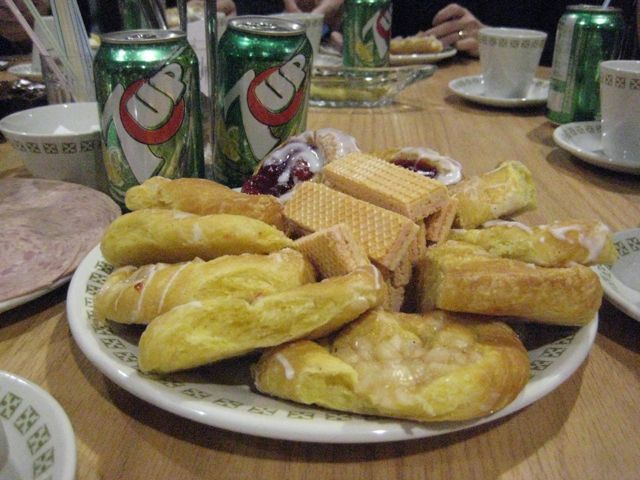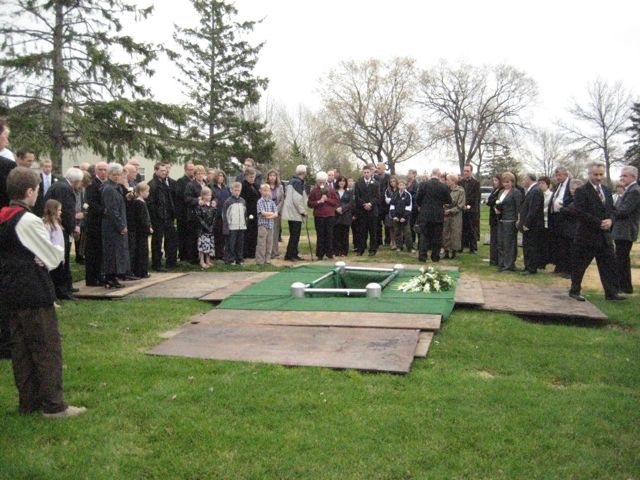My grandfather died last week. He was 96 (though the government insisted he was 97 because of a decades old administrative error)…a quiet man who was a laborer, a good man, one that his family cared about. He was practical–didn’t want to get a new warm jacket in his early 90’s even though he needed one–because he didn’t think he’d get enough use out of it to make it worth it. Someone who I remember as sitting quietly while we had a great time with Grandma–his hearing was badly affected by the factory work, and so he was always there, he just didn’t participate in the conversation much. One who had simple pleasures–we had Seven-Up and pink wafer cookies at the lunch after the funeral in honor of his favorite snack, which was always an option when the food in the personal care home wasn’t to his liking–and it often wasn’t.
| He meant a lot to his crew of children. It was difficult for many to say good bye at the funeral. What I noticed as significant was my aunts and uncles, who are decades past the “honeymoon stage” holding hands. No-nonsense kind of people who aren’t generally at all mushy–but holding hands as the casket was lowered into the ground. Quietly and inobtrusively, in-laws giving support to biological children–sustaining and encouraging with touch.
When children are upset, hurt, or bewildered, most will run for comfort to a parent. The parent scoops the child up, hugs the child, stroking their hair, rubbing the “owie” and speaking in low soft tones. We know how many children who are frightened or stressed immediately become calmed when handed their blankie, nookie, soother, teddy –generally something that their parents have provided to them and has come to be associated with safety and comfort. |

|
So often as adults we forget the benefit of reassuring touch of someone we trust and and knows cares about us. So often, in the mundane everydayness of life, or the madhouse rush of our crazy schedules, it slips our minds to reach out and touch someone…to ask for or give the touch that says, “I love you. I am here for you. I care about you. You are safe with me.”
It helps. Just ask my aunts and uncles.







Write a Comment